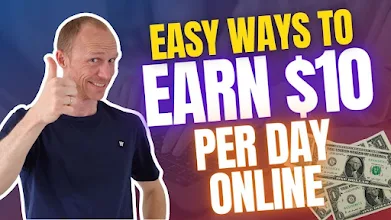Some reasons why individuals may choose not to use Google Chrome include:
Thursday, February 8, 2024
Wednesday, February 7, 2024
Why can’t I make money?
Why Am I Not Earning More: Unraveling Money Blocks
Introduction
Have you ever found yourself wondering why you're not earning more money? You work hard, but the numbers in your bank account just don't seem to reflect that. If this sounds like you, then you might be facing some money blocks that are preventing you from earning what you're truly worth. In this blog post, we'll be discussing some of the most common money blocks that people face and how to overcome them.Tuesday, February 6, 2024
Is there an inherent purpose for human existence? Can someone choose to not have a purpose?
The question of whether there is an inherent purpose for human existence is a complex and philosophical one that has been debated throughout history. Different individuals, cultures, and belief systems may offer various perspectives on this matter.
From a religious standpoint, some people believe that there is a divine purpose or plan for human existence, guided by a higher power or deity. Others may find purpose in philosophical or existential perspectives, suggesting that individuals must create their own meaning in life.
On the other hand, some philosophical and existentialist thinkers argue that life inherently lacks a predetermined purpose, and individuals must find or create their own meaning. Existentialist philosophers like Jean-Paul Sartre, for instance, emphasized the concept of existential freedom, where individuals are free to choose their own purpose or meaning in life.
It's also worth noting that some people may reject the idea of a predefined purpose altogether and embrace the notion that life's meaning is subjective and personal. They may argue that individuals can choose not to have a specific purpose and instead navigate their lives based on their own values and desires.
Ultimately, the question of purpose is subjective and can vary greatly among individuals and cultures. Some may find comfort in adhering to a predetermined purpose, while others may prefer to explore and define their own meaning in life. The idea of choosing not to have a purpose is also a perspective that aligns with certain existentialist and nihilistic viewpoints.
head>Monday, February 5, 2024
How do I earn money online with just $10 daily?
Frugal Earning: Making Money Online with Just $10 a Day.
Introduction:
If you're looking for a way to supplement your income, or are interested in transitioning into a career with more flexibility, making money online could be the right option for you. You might be surprised to learn that with just $10 a day, you can begin to build a successful online business. In this blog post, we'll explore various online money-making strategies and help you understand how to get startedLive streaming
Live streaming Apparently posting ‘instant’ pictures on Instagram isn’t enough. Bloggers and brands are expected to go one step ...
-
There are several potential factors that could lead to a loss of faith in Paytm's business model: Sustainability Concerns : ...
-
The duration for which humans can survive without hope is not easily quantifiable and varies greatly depending on individual circumstances, ...
.jpg)

.jpg)








